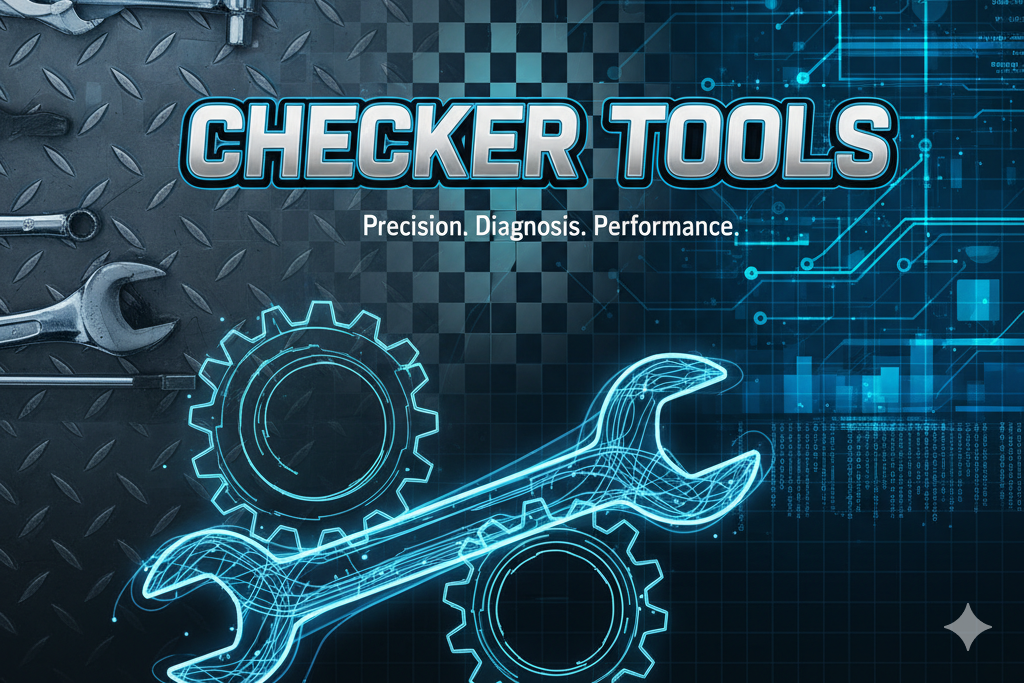Checker Tools: Ensuring Quality and Compliance
A comprehensive guide to automated tools that help maintain quality, security, and standards across digital projects
What Are Checker Tools?
Checker tools are automated software applications designed to analyze, validate, and verify various aspects of digital content, code, or systems. These tools help developers, content creators, and IT professionals ensure their work meets specific standards, follows best practices, and remains free from errors or vulnerabilities.
From code quality analysis to accessibility compliance, checker tools have become essential components of modern development workflows, enabling teams to deliver higher quality products with greater efficiency.
Types of Checker Tools
Code Quality Tools
Tools that analyze source code for potential issues, adherence to coding standards, and overall maintainability.
- ESLint (JavaScript)
- Pylint (Python)
- SonarQube (Multi-language)
- Checkstyle (Java)
- RuboCop (Ruby)
Accessibility Checkers
Tools that evaluate web content for compliance with accessibility standards like WCAG.
- WAVE Evaluation Tool
- axe Accessibility Checker
- Lighthouse (Chrome DevTools)
- Pa11y
- AChecker
Security Scanners
Tools that identify vulnerabilities, security misconfigurations, and potential threats.
- OWASP ZAP
- Nessus
- Nmap
- Burp Suite
- Snyk
Content & SEO Tools
Tools that analyze content quality, readability, and search engine optimization factors.
- Grammarly
- Yoast SEO
- Google PageSpeed Insights
- SEMrush Site Audit
- Hemingway Editor
Website Validators
Tools that check web pages for standards compliance and technical correctness.
- W3C Markup Validation Service
- CSS Validation Service
- Structured Data Testing Tool
- Link Checkers
- Browser Compatibility Testers
Performance Analyzers
Tools that measure and optimize the speed and efficiency of applications.
- GTmetrix
- WebPageTest
- Pingdom Website Speed Test
- Chrome Performance Tab
- New Relic
Benefits of Using Checker Tools
Improved Quality
Automated checking helps identify issues early, leading to higher quality outputs with fewer defects.
Time Savings
Automation reduces manual review time, allowing teams to focus on more complex tasks.
Consistency
Tools apply the same standards consistently across all projects and team members.
Compliance Assurance
Regular checks help maintain compliance with industry standards and regulations.
Educational Value
Tools often provide explanations for identified issues, helping teams learn and improve.
Risk Reduction
Early detection of security vulnerabilities and performance issues reduces business risks.
Best Practices for Using Checker Tools
- Integrate Early and Often: Incorporate checker tools into your development workflow from the beginning, not just at the end of projects.
- Customize Rules: Adjust tool configurations to match your team's specific standards and requirements.
- Combine Multiple Tools: Use complementary tools to get comprehensive coverage of different aspects of quality.
- Automate Where Possible: Set up automated checks in your CI/CD pipeline to catch issues before deployment.
- Prioritize Findings: Focus on addressing critical issues first, then work through less important findings.
- Review and Update: Regularly review tool configurations and update them as standards and requirements evolve.
- Educate Your Team: Ensure team members understand why checks are important and how to address identified issues.
Conclusion
Checker tools have become indispensable in modern digital workflows, providing automated validation that helps maintain quality, security, and compliance across various domains. By integrating these tools into development processes and following best practices, teams can deliver better products more efficiently while reducing risks and ensuring adherence to industry standards.
As technology continues to evolve, we can expect checker tools to become even more sophisticated, offering deeper insights and more comprehensive analysis capabilities to support quality assurance efforts.
